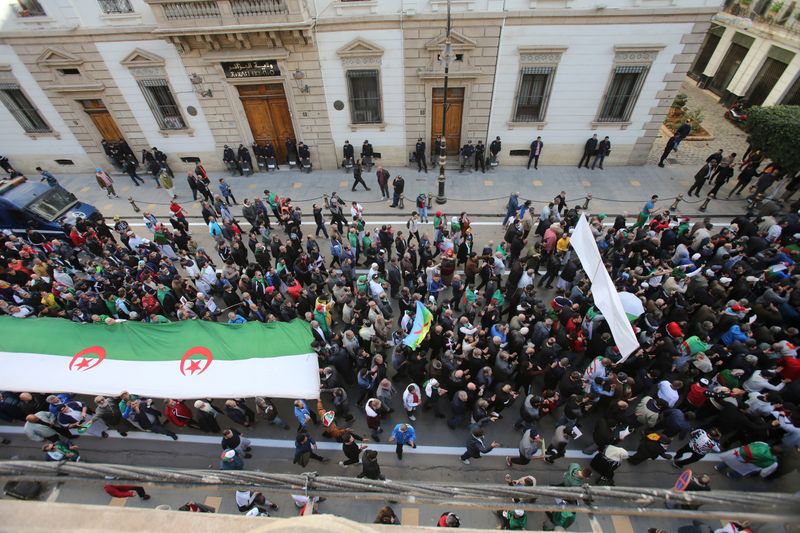
ALGIERS, Jan 31 (NNN-AGENCIES) — While uprisings across North Africa and the Middle East have been quelled by deadly force, Algerian authorities are on the way to becalming a powerful protest movement without a shot fired – at least for now.
Thousands still march, but protests are smaller than those that toppled the veteran president last year. Some prominent figures say the opposition should accept an offer of dialogue from the government.
These changes suggest the secretive authorities, known to Algerians as le pouvoir – “the powers that be” – may have outmanoeuvred the biggest threat to their rule in decades.
Their strategy has been to place new faces at the top of government, while playing for time and proposing talks. The approach seems to be wearing down the opposition.
“I did not go to the protests on the past two Fridays,” said Hamdadou, 51, a telecoms worker who had attended most previous marches and asked to keep his family name unpublished.
Protesters say the marches have diminished since last month’s election of a new president, Abdelmadjid Tebboune, seen by the leaderless opposition as an establishment stalwart.
The protests began nearly a year ago, flooding cities with national flags and placards, demanding a removal of the ruling elite, an end to graft and the army’s withdrawal from politics.
Le pouvoir jettisoned President Abdelaziz Bouteflika, threw some top officials into prison on corruption charges and let the protests continue, publicly hailing them as a patriotic renewal while detaining dozens of marchers and prominent dissidents.
Their strategy – pushed by the powerful army chief Ahmed Gaed Salah – was to use December’s election to restore legitimacy to a system that would remain essentially unchanged.
Tebboune was elected on an official turnout of 40%, though many protesters believe even that figure was inflated, and immediately freed many prisoners and offered dialogue with the protesters and reform of the constitution.
Gaed Salah then died suddenly of a heart attack in late December, meaning Algeria now has a new president, government and army chief and that all the most prominent figures associated with le pouvoir have been replaced.
Some politicians who embraced the protest movement, known as “hirak”, say their struggle should now move from the street to the negotiating table, arguing that further reforms can only be achieved through dialogue.
“It is the time for politics now. Hirak would continue to be a means of pressure, but only politicians can talk with the regime to push forward demands including a change of the system,” said Soufiane Djilali, an opposition leader.
Djilali was one of several opposition figures including Mouloud Hamrouche, Ahmed Taleb Ibrahimi, Abdelaziz Rahabi and Ahmed Benbitour to meet Tebboune, a former prime minister under Bouteflika, drawing ire from street protesters.
But the thousands – down from hundreds of thousands last spring and tens of thousands before December’s election – who still protest believe there has been only cosmetic change. — NNN-AGENCIES





